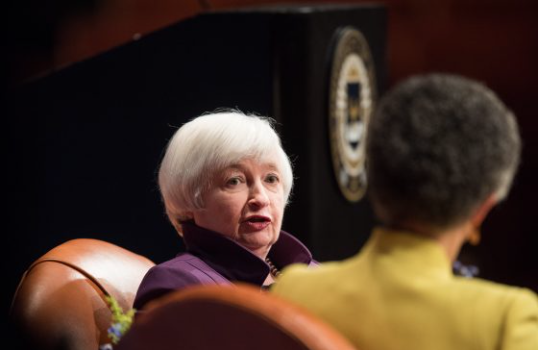
U.S. Treasury Secretary Janet Yellen told House Speaker Nancy Pelosi Friday that unless Congress acted quickly to raise the statutory limit on the amount of money the federal government can borrow, she would be forced to “start taking certain additional extraordinary measures” to prevent the United States government from defaulting on its financial obligations.
In a letter sent to Pelosi and other members of the congressional leadership in both parties, Yellen asserted that an increase or continued suspension of the debt limit “does not increase government spending, nor does it authorize spending for future budget proposals; it simply allows Treasury to pay for previously enacted expenditures.”
With just days to go before the statuary suspension of the debt limit ends at noon on July 31, the need for congressional action has already become a political football. Both parties are trying to use the issue on Capitol Hill to gain leverage over the other to either stop or move through to final passage several pieces of legislation that are a top priority for the Biden Administration.
The full text of the letter is as follows:
Dear Madam Speaker:
As you know, the Bipartisan Budget Act of 2019 suspended the statutory debt limit through Saturday, July 31, 2021. I am writing to inform you that beginning on Sunday, August 1, 2021, the outstanding debt of the United States will be at the statutory limit.
Today, Treasury is announcing that it will suspend the sale of State and Local Government Series (SLGS) securities at 12:00 p.m. on July 30, 2021. The suspension of SLGS sales will continue until the debt limit is suspended or raised. If Congress has not acted to suspend or increase the debt limit by Monday, August 2, 2021, Treasury will need to start taking certain additional extraordinary measures in order to prevent the United States from defaulting on its obligations.
Increasing or suspending the debt limit does not increase government spending, nor does it authorize spending for future budget proposals; it simply allows Treasury to pay for previously enacted expenditures. The current level of debt reflects the cumulative effect of all prior spending and tax decisions, which have been made by Administrations and Congresses of both parties over time. Failure to meet those obligations would cause irreparable harm to the U.S. economy and the livelihoods of all Americans. Even the threat of failing to meet those obligations has caused detrimental impacts in the past, including the sole credit rating downgrade in the history of the nation in 2011. This is why no President or Treasury Secretary of either party has ever countenanced even the suggestion of a default on any obligation of the United States.
The period of time that extraordinary measures may last is subject to considerable uncertainty due to a variety of factors, including the challenges of forecasting the payments and receipts of the U.S. government months into the future, exacerbated by the heightened uncertainty in payments and receipts related to the economic impact of the pandemic. Given this, Treasury is not able to currently provide a specific estimate of how long extraordinary measures will last. However, there are scenarios in which cash and extraordinary measures could be exhausted soon after Congress returns from recess. For example, on October 1 alone, cash and extraordinary measures are expected to decrease by about $150 billion due to large mandatory payments, including a Department of Defense-related retirement and health care investment.
In recent years Congress has addressed the debt limit through regular order, with broad bipartisan support. I respectfully urge Congress to protect the full faith and credit of the United States by acting as soon as possible.
It is highly unlikely members in either party will allow the deadline to be reached without reaching some kind of compromise agreement to forestall the U.S. defaulting on its debt. Such a move would, most economists agree, that even a technical default would put in motion a disruption in the global financial markets of what one economist called “a global disruption of unknown and unknowable proportions.”
Such a collapse, which would provide China an ample boost in their campaign urging the replacement of the dollar as the global reserve currency, would likely be blamed on the Republicans. Fear that it might in turn limits the ability of spending restraint advocates to argue the deadline should be allowed to come and go unless reforms are made.
This game of economic chicken has been tried before, with the first one to blink generally considered the loser.